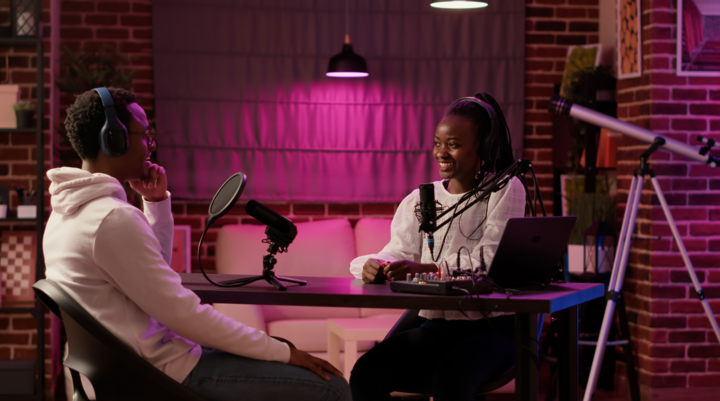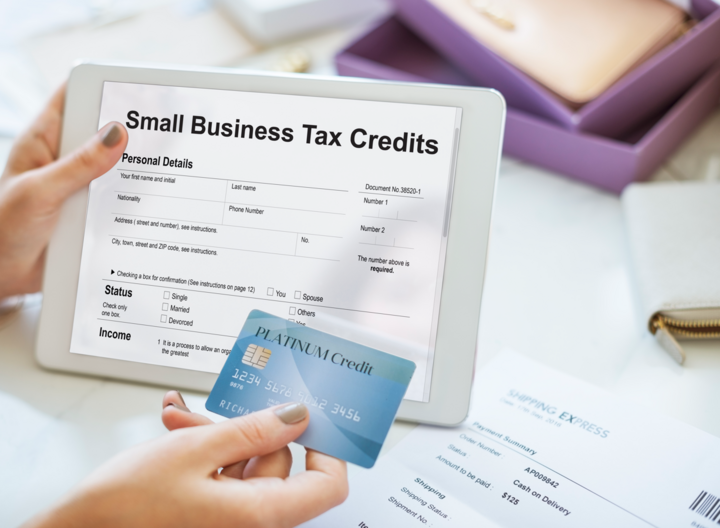The rise of podcasting has revolutionized the way we consume audio content. With its accessibility and convenience, it has become a popular medium for information, entertainment, and education. This article aims to guide aspiring podcasters on how to start a podcast for beginners to set it up for success. We will discuss the aspects of conceptualizing, producing, promoting, and monetizing your podcast while maintaining a consistent and professional tone.
How to Start Podcast for Beginners in 8 Steps
Step 1: Defining Your Podcast Concept
When learning how to start a podcast for beginners, the crucial first step is establishing a clear and unique podcast concept to stand out in the burgeoning podcast market, with over 3.2 million active podcasts globally. A unique concept draws listeners in, keeps them engaged, steers your content creation journey, and influences the choice of topics, interviews, and marketing approaches.
When selecting a theme for your podcast, consider your passions, areas of expertise, and what will resonate with your target audience. Opt for a subject that excites you, leverage your professional or personal experiences for authenticity, identify a niche in the market, and keep your target audience at the forefront of your decisions. While a clear theme is crucial, ensure your concept maintains flexibility for freshness and adaptability. A well-defined podcast concept serves as a solid foundation for your podcasting journey.
Step 2: Identifying Your Target Audience
Understanding who your podcast will appeal to is critical in the creation process. Your target audience is the specific listeners most likely to be interested in your podcast's content. Various attributes, including age, profession, hobbies, or other defining traits, could delineate an individual. Having a clear picture of your target audience can help you tailor your content, tone, and even the length of your episodes to meet their preferences and needs.
Knowing your audience goes beyond just understanding who they are. It involves knowing their interests, challenges, values, and what they seek in a podcast. This knowledge can shape your content significantly. For example, if your target audience is busy professionals, they might prefer short, concise episodes filled with actionable information.
On the other hand, if your audience is composed of enthusiasts in a specific field, they might appreciate longer, more in-depth discussions. By aligning your content with your audience's preferences, you can increase listener engagement and loyalty, ultimately leading to the success of your podcast.
Step 3: Choosing the Right Format and Style
Selecting an appropriate format for your podcast is vital, with options including interview-style, conversational, educational, solo, or storytelling formats. Each brings a unique dynamic and caters to different listener preferences. For instance, interview podcasts feature a host and guest, conversational ones involve co-hosts discussing topics, educational podcasts focus on imparting knowledge, and storytelling podcasts weave a narrative for the audience.
The style of your podcast should align with your concept and audience. For an audience craving detailed insights, consider adopting an educational or storytelling approach to your content. If they enjoy diverse perspectives, a roundtable discussion could be ideal. The chosen format and style should reflect your podcast's theme and cater to your audience's preferences for maximum engagement and success.
Step 4: Getting the Necessary Equipment
Launching a podcast necessitates some equipment to guarantee high audio quality, a crucial factor in retaining listeners. The starter equipment includes a good-quality microphone, headphones, a pop filter, and a soundproof room or area. A microphone is the most crucial tool as it directly affects audio quality. USB microphones are often a good choice for beginners due to their ease of use and affordability. High-quality headphones are also essential for monitoring your audio while recording. A pop filter can help reduce unwanted noise from plosive sounds, and recording in a soundproof area helps eliminate background noise.
When choosing podcasting equipment, prioritize balancing quality with your budget. Start with the essentials and upgrade as your podcast grows. Research and read reviews before making any purchase. Consider the durability, sound quality, and user-friendliness of the equipment. And remember, while high-end equipment can enhance your audio quality, content is still king. Invest more in crafting engaging content rather than relying solely on advanced equipment. Enhance your setup gradually as your budget permits, ensuring quality content remains a top priority.
Step 5: Planning and Producing Your Episodes
The structure and planning of podcast episodes are key for engaging content that retains listeners. A well-organized episode ensures a smooth flow of ideas and effectively communicates your message. Start with a clear introduction, delve into details in the middle, and summarize key points at the end. Regular planning meetings can spark ideas, determine topics, and identify potential guests, keeping content fresh and aiding in organization and consistency. This approach helps build and retain your listener base effectively.
Producing a podcast episode involves several key steps.
- Finalize the topic and research thoroughly.
- Outline or script the episode for guidance.
- Record in a quiet, soundproof space for quality.
- Edit by removing errors, enhancing audio, and adding effects.
- Review for coherence.
- Publish on your chosen platform.
Step 6: Recording and Editing Techniques
Recording quality audio is foundational to podcasting. Start by finding a quiet, echo-free space to avoid background noise. Use a good microphone positioned correctly; it should be close enough to capture your voice clearly but not so close that it picks up unwanted sounds or distortions. Speak naturally and clearly, maintaining consistent volume and pace. Test your audio levels before starting the recording to ensure optimal sound quality.
When you are ready to start editing, numerous free and paid software options are available, such as Audacity, GarageBand, and Adobe Audition. Familiarize yourself with the basics of your chosen software - learn how to cut, move, and adjust audio segments, apply noise reduction, and add music or sound effects. Editing goes beyond correcting errors; it is about enriching your podcast's listening experience. It might seem daunting initially, but you will get the hang of it with practice.
Step 7: Publishing and Promoting Your Podcast
When publishing your podcast, choosing the right hosting platform is crucial. These platforms provide storage and distribution services for your audio files, making them accessible on top podcast directories and streaming platforms. Some popular hosting sites include Spotify for Podcasters, PodBean, and BuzzSprout. Each platform has unique features, storage capacities, and pricing models, so choose one that suits your podcast's needs and budget.
Promoting your podcast is just as important as creating quality content. Start by leveraging your existing networks - share episodes on your social media accounts, email newsletters, and website. Consider guest starring on other relevant podcasts or inviting influential guests to your show to expand your reach. Consistently engage with your audience through comments, emails, or even live events.
Step 8: Monetizing Your Podcast
Monetizing your podcast can transform your passion into a profitable venture. You can achieve monetization through sponsorships, ads with brands aligning with your content, listener donations, merchandise sales, and affiliate marketing via referral links.
To captivate sponsors and advertisers, employ a strategic method. Begin by cultivating a robust listener base and fostering engagement, pivotal indicators for potential sponsors. Craft an enticing media kit that presents your podcast's particulars, audience insights, download statistics, and advertising rates. Connect with companies that align with your content, emphasizing the mutual advantages of collaboration, but keep in mind that sponsor relationships demand patience and perseverance.
Just Keep Podcasting
The question of how to start a podcast for beginners can be answered by following several steps - from conceptualizing and structuring your content to recording, editing, distributing, and marketing your podcast. It is also important to consider monetization strategies to turn your passion into profit. Each step is crucial and contributes to the overall success of your podcast.
Podcasting requires patience, consistency, and a love for sharing stories and knowledge. Do not be disheartened if you do not see immediate success. Keep learning, improving, and, most importantly, keep podcasting. Engage with your audience, take their feedback on board, and always strive to provide content that resonates with them. Above all, enjoy the process. Your passion and enthusiasm will shine through your work and inspire your listeners.
Need funding to start your podcast? How about capital that is zero interest? Fund&Grow has been helping entrepreneurs - just like you - access business funding since 2007, generating over $1.7 billion for 30,000+ business owners. Check out our free business funding resource to learn how you can access the funding you need for new equipment, marketing, or any other business expense without paying interest, risking your assets as collateral, or compiling financial documentation.
Popular Posts
Instantly Pre-Qualify
Want Actionable Information, Tools and Resources To Quickly Acquire Business Capital, Credit and Funding?
I take tremendous pride in building positive and lasting relationships in my businesses and personal life. Every member of my team is committed to helping our clients get the maximum amount of funding possible and achieve their highest growth potential.



 Share
Share









